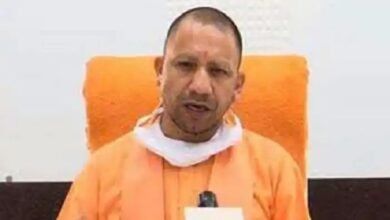[ad_1]

Image used for representation purpose only.
| Photo Credit: Ritu Raj Konwar
The Supreme Court on December 7 said there is a “feeling” that an “unlimited influx” of illegal migrants from Bangladesh not only changes demographics but also poses a burden on resources meant for Indian citizens.
“On one hand, we do not have an open border through which anybody from Bangladesh can come and settle anywhere in India. At the same time, if we do not take action to curb illegal migration, then it causes all these problems in India… The feeling in India that infrastructure is limited, education is limited, public hospitals are limited… We cannot allow an unlimited influx,” Chief Justice of India D.Y. Chandrachud, heading a Constitution Bench, observed.
Supreme Court hearing on the challenge to Section 6A of the Citizenship Act on December 7, 2023
The Bench is hearing a series of petitions by indigenous Assamese groups challenging Section 6A of the Citizenship Act, 1955. The groups have argued that the special provision, brought in shortly after the signing of the Assam Accord in 1985, became a “beacon” for illegals entering India to settle in Assam, gain Indian citizenship, deprive the locals of their political and economic rights and destroy the Assamese cultural identity.
Section 6A had divided immigration from Bangladesh to India into three time periods. Those who entered India before January 1, 1966 were deemed Indian citizens. Those who came in between January 1, 1966 and March 25, 1971 were registered as Indians provided they fulfilled certain conditions. People who crossed over to India after March 25, 1971 were illegals and to be deported as per the law.
To file affidavit
The Supreme Court ordered the Home Secretary to file an affidavit before Monday on the “estimated inflow of illegal migrants into India, including but not confined to Assam, after March 25, 1971”, steps taken by the Centre to deal with the illegal immigration and details on the extent of and timelines for the border-fencing.
Also read: Citizenship Act hearing | Government needs latitude to make peace, says CJI
Chief Justice Chandrachud said India was not an authoritarian country which would just pick up illegals and deport them. The CJI said India followed due process of law as there was a genuine fear that innocents would be picked up.
“How much investment is the Government of India taking to make the border impermeable? What is the government doing to ensure that we have an impermeable border? We want to know what is being done now against illegal immigration, which is not only about changing demographics but is also a burden on available resources,” the Chief Justice asked.
Senior advocate Kapil Sibal, appearing for a respondent party in the case, indicated that legislative policies like Section 6A “created problems”. “It becomes ‘us versus the others’,” he said.
‘Why only for Assam?’
The court asked the Centre why Section 6A, which gave illegal migrants the benefit of Indian citizenship, was made applicable only in Assam and not in West Bengal, which shared a larger portion of the border with Bangladesh.
“Why did you single out Assam? Did you have any cogent data to show that the illegal immigration to West Bengal was minimal compared to Assam, so that you left the former State alone… Possibly the extent of illegal immigration to West Bengal may have been more significant than in Assam,” Chief Justice Chandrachud addressed Solicitor General Tushar Mehta, appearing for the Centre and the State of Assam.
The court asked the government to give details about illegal immigration, post March 25, 1971, into the West Bengal part of the border.
“We want to know what the government is doing in West Bengal,” Chief Justice Chandrachud said.
The Chief Justice noted that grievances about demographic changes and destruction of the local cultural identity due to illegal immigration from a foreign country cannot be compared to complaints by people of one State about how migrants from another State within the country was “changing their culture”.
“There is a huge inter-State migration in the IT sector. People cannot say because of this our culture is being changed. India is one entity. People from no one State can say that our culture is being affected because of influx from another State,” Chief Justice Chandrachud clarified.



